Peugeot 5008 vs VW ID. Buzz Bus - Differences and prices compared
Compare performance (325 HP vs 340 HP), boot space and price (37600 £ vs 42900 £) at a glance. Find out which car is the better choice for you – Peugeot 5008 or VW ID. Buzz Bus?
Costs and Efficiency:
Price and efficiency are key factors when choosing a car – and this is often where the real differences emerge.
Peugeot 5008 has a to a small extent advantage in terms of price – it starts at 37600 £, while the VW ID. Buzz Bus costs 42900 £. That’s a price difference of around 5261 £.
In terms of energy consumption, the advantage goes to the Peugeot 5008: with 17.80 kWh per 100 km, it’s slight more efficient than the VW ID. Buzz Bus with 19 kWh. That’s a difference of about 1.20 kWh.
As for range, the Peugeot 5008 performs evident better – achieving up to 669 km, about 184 km more than the VW ID. Buzz Bus.
Engine and Performance:
Power, torque and acceleration say a lot about how a car feels on the road. This is where you see which model delivers more driving dynamics.
When it comes to engine power, the VW ID. Buzz Bus has a slight edge – offering 340 HP compared to 325 HP. That’s roughly 15 HP more horsepower.
In acceleration from 0 to 100 km/h, the VW ID. Buzz Bus is barely noticeable quicker – completing the sprint in 6.10 s, while the Peugeot 5008 takes 6.50 s. That’s about 0.40 s faster.
In terms of top speed, the Peugeot 5008 performs noticeable better – reaching 220 km/h, while the VW ID. Buzz Bus tops out at 160 km/h. The difference is around 60 km/h.
There’s also a difference in torque: VW ID. Buzz Bus pulls evident stronger with 679 Nm compared to 511 Nm. That’s about 168 Nm difference.
Space and Everyday Use:
Cabin size, boot volume and payload all play a role in everyday practicality. Here, comfort and flexibility make the difference.
Seats: Peugeot 5008 offers clearly perceptible more seating capacity – 7 vs 5.
In curb weight, Peugeot 5008 is convincingly lighter – 1700 kg compared to 2400 kg. The difference is around 700 kg.
In terms of boot space, the VW ID. Buzz Bus offers convincingly more room – 1340 L compared to 348 L. That’s a difference of about 992 L.
In maximum load capacity, the Peugeot 5008 performs hardly perceptible better – up to 2232 L, which is about 27 L more than the VW ID. Buzz Bus.
When it comes to payload, Peugeot 5008 minimal takes the win – 640 kg compared to 600 kg. That’s a difference of about 40 kg.
Who comes out on top?
Overall, the Peugeot 5008 shows itself to be performs better in key areas and secures the title of DriveDuel Champion.
It convinces with the more balanced overall package and proves to be the more versatile choice for everyday use.
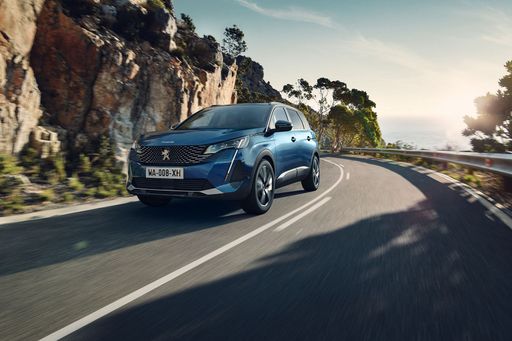
Peugeot 5008
Costs and Consumption
View detailed analysis
Engine and Performance
View detailed analysis
Dimensions and Body
View detailed analysis
Peugeot 5008
The Peugeot 5008 blends Peugeot's sharp design with the space and versatility families actually need, wrapping clever packaging and a premium-feeling cabin in a crisp, SUV-like silhouette. It drives with more poise than you'd expect from a people carrier, serves up practical touches and flexible seating for everyday chaos, and still looks good when parked outside the school gates.
details

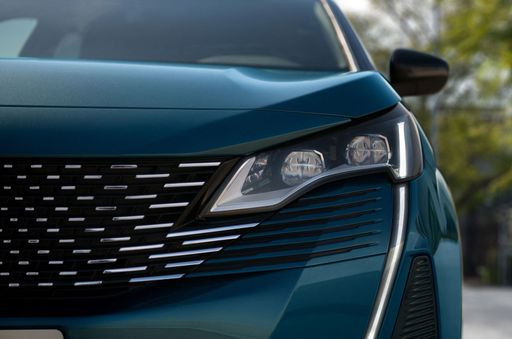

VW ID. Buzz Bus
The VW ID. Buzz revives the classic camper van vibe with a modern electric twist, offering plush space and a friendly, futuristic face that stops traffic. It’s clearly built for weekend escapes and city runs alike, with clever interior details that make it as practical as it is charming.
details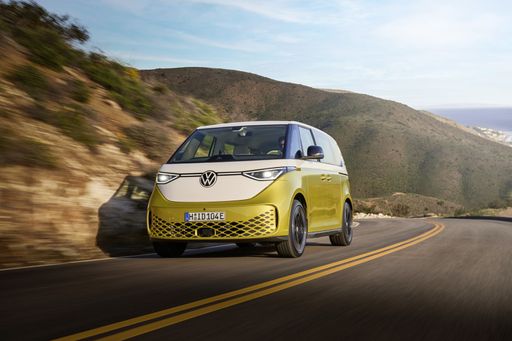
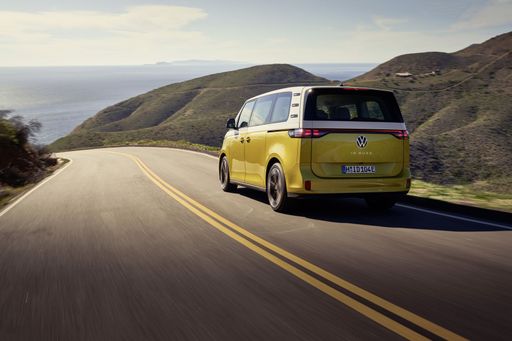
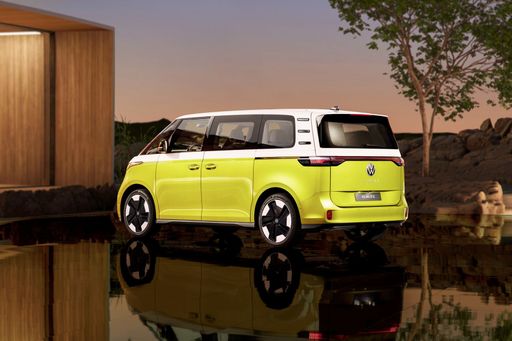
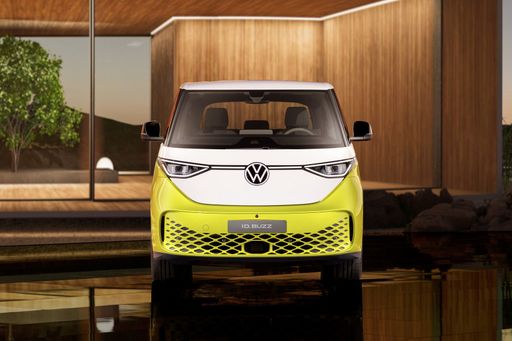
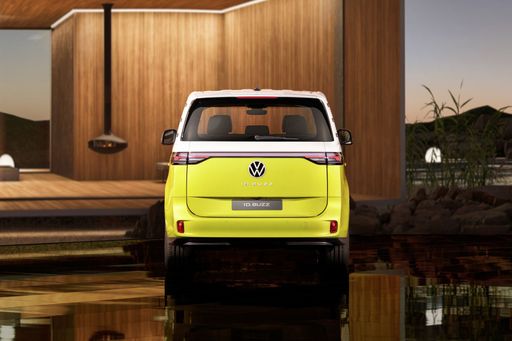
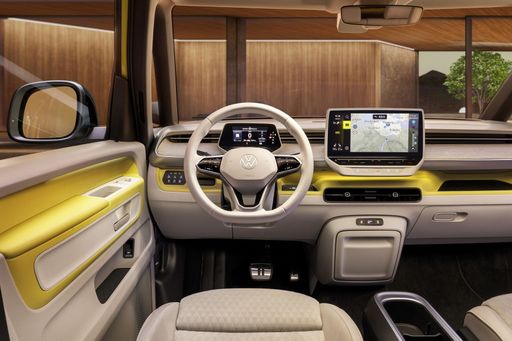
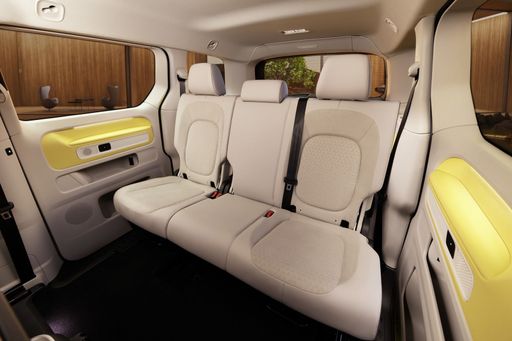
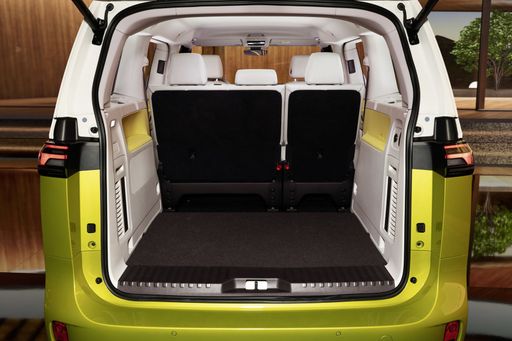
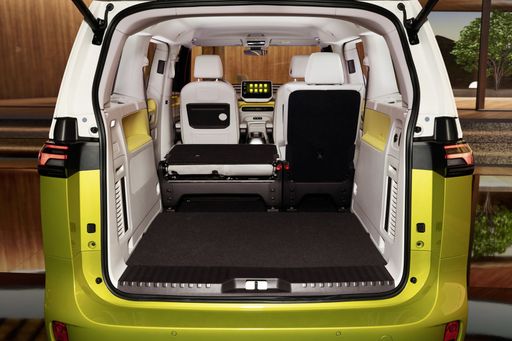

|

|
|
|
|
Costs and Consumption |
|
|---|---|
|
Price
37600 - 54200 £
|
Price
42900 - 64200 £
|
|
Consumption L/100km
2.7 - 5.6 L
|
Consumption L/100km
-
|
|
Consumption kWh/100km
17.8 - 18.6 kWh
|
Consumption kWh/100km
19 - 20.6 kWh
|
|
Electric Range
78 - 669 km
|
Electric Range
329 - 485 km
|
|
Battery Capacity
0.4 - 96.9 kWh
|
Battery Capacity
59 - 86 kWh
|
|
co2
0 - 127 g/km
|
co2
0 g/km
|
|
Fuel tank capacity
55 L
|
Fuel tank capacity
-
|
Dimensions and Body |
|
|---|---|
|
Body Type
SUV
|
Body Type
Bus
|
|
Seats
7
|
Seats
5
|
|
Doors
5
|
Doors
5
|
|
Curb weight
1700 - 2344 kg
|
Curb weight
2400 - 2780 kg
|
|
Trunk capacity
294 - 348 L
|
Trunk capacity
1121 - 1340 L
|
|
Length
4791 mm
|
Length
4712 - 4962 mm
|
|
Width
1895 mm
|
Width
1985 mm
|
|
Height
1694 mm
|
Height
1924 - 1927 mm
|
|
Max trunk capacity
2178 - 2232 L
|
Max trunk capacity
2205 L
|
|
Payload
596 - 640 kg
|
Payload
462 - 600 kg
|
Engine and Performance |
|
|---|---|
|
Engine Type
Electric, Petrol MHEV, Plugin Hybrid
|
Engine Type
Electric
|
|
Transmission
Automatic
|
Transmission
Automatic
|
|
Transmission Detail
Reduction Gearbox, Dual-Clutch Automatic
|
Transmission Detail
-
|
|
Drive Type
Front-Wheel Drive, All-Wheel Drive
|
Drive Type
Rear-Wheel Drive, All-Wheel Drive
|
|
Power HP
145 - 325 HP
|
Power HP
170 - 340 HP
|
|
Acceleration 0-100km/h
6.5 - 10.2 s
|
Acceleration 0-100km/h
6.1 - 10.7 s
|
|
Max Speed
170 - 220 km/h
|
Max Speed
145 - 160 km/h
|
|
Torque
230 - 511 Nm
|
Torque
310 - 679 Nm
|
|
Number of Cylinders
3 - 4
|
Number of Cylinders
-
|
|
Power kW
107 - 239 kW
|
Power kW
125 - 250 kW
|
|
Engine capacity
1199 - 1598 cm3
|
Engine capacity
-
|
General |
|
|---|---|
|
Model Year
2024 - 2025
|
Model Year
2024
|
|
CO2 Efficiency Class
A, D, B
|
CO2 Efficiency Class
A
|
|
Brand
Peugeot
|
Brand
VW
|
Is the Peugeot 5008 offered with different drivetrains?
Available configurations include Front-Wheel Drive or All-Wheel Drive.
The prices and data displayed are estimates based on German list prices and may vary by country. This information is not legally binding.
